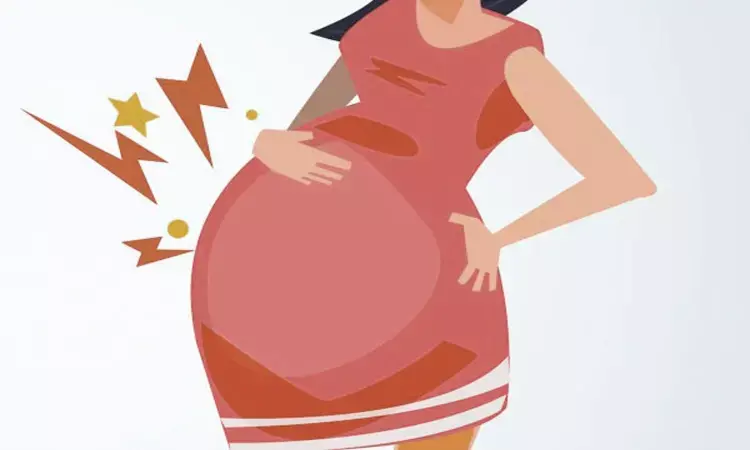- Home
- Medical news & Guidelines
- Anesthesiology
- Cardiology and CTVS
- Critical Care
- Dentistry
- Dermatology
- Diabetes and Endocrinology
- ENT
- Gastroenterology
- Medicine
- Nephrology
- Neurology
- Obstretics-Gynaecology
- Oncology
- Ophthalmology
- Orthopaedics
- Pediatrics-Neonatology
- Psychiatry
- Pulmonology
- Radiology
- Surgery
- Urology
- Laboratory Medicine
- Diet
- Nursing
- Paramedical
- Physiotherapy
- Health news
- Fact Check
- Bone Health Fact Check
- Brain Health Fact Check
- Cancer Related Fact Check
- Child Care Fact Check
- Dental and oral health fact check
- Diabetes and metabolic health fact check
- Diet and Nutrition Fact Check
- Eye and ENT Care Fact Check
- Fitness fact check
- Gut health fact check
- Heart health fact check
- Kidney health fact check
- Medical education fact check
- Men's health fact check
- Respiratory fact check
- Skin and hair care fact check
- Vaccine and Immunization fact check
- Women's health fact check
- AYUSH
- State News
- Andaman and Nicobar Islands
- Andhra Pradesh
- Arunachal Pradesh
- Assam
- Bihar
- Chandigarh
- Chattisgarh
- Dadra and Nagar Haveli
- Daman and Diu
- Delhi
- Goa
- Gujarat
- Haryana
- Himachal Pradesh
- Jammu & Kashmir
- Jharkhand
- Karnataka
- Kerala
- Ladakh
- Lakshadweep
- Madhya Pradesh
- Maharashtra
- Manipur
- Meghalaya
- Mizoram
- Nagaland
- Odisha
- Puducherry
- Punjab
- Rajasthan
- Sikkim
- Tamil Nadu
- Telangana
- Tripura
- Uttar Pradesh
- Uttrakhand
- West Bengal
- Medical Education
- Industry
Negative pregnancy outcomes highly associated among incarcerated women

Among pregnant women admitted to the hospital for delivery, those who were jailed had a greater risk of unfavorable pregnancy outcomes and medical problems, says an article published in American Journal of Obstetrics and Gynecology on 1st April, 2022.
In this group, there is little and inconsistent data on the risk of preterm birth, and no data on the risk of other pregnancy problems, such as severe maternal morbidity. Consequences may be poorer as a result of inadequate or substandard care. Therefore, Teresa C.Logue an steam conducted this study to assess the hospitalization conditions and frequency of preterm delivery and adverse events associated with it.
Researchers examined delivery hospitalizations from October 1, 2015, to December 31, 2018, as part of the National Inpatient Sample for this investigation. They identified 12 million women between the ages of 15 and 54 who were hospitalized during birth, with 1,580 (0.01%) having an ICD diagnosis of imprisonment.
The findings of this study were as follow:
1. Inmates had a considerably higher risk of premature birth, abruption, and antepartum hemorrhage.
2. Women who were incarcerated were more likely to have a mental health problem, drug use disorder, viral hepatitis, and sexually transmitted illnesses than those who were not.
3. They were also more likely to smoke, utilize Medicaid, and be in the lowest income quartile.
4. Those with an imprisonment diagnosis had greater rates of non-transfusion, severe maternal morbidity, preterm birth, hypertensive disorders of pregnancy, cesarean delivery, postpartum hemorrhage and abruption, and antepartum hemorrhage compared to women without an incarceration diagnosis.
5. Even after adjusting for other factors, the risks of having a preterm birth, as well as abruption and antepartum hemorrhage, were considerably greater among women who had been incarcerated.
In conclusion, this study's findings indicate a need for greater monitoring of pregnancy problems in this high-risk group, as well as changes in care quality and access.
Reference:
Logue, T. C., Wen, T., Staniczenko, A., Huang, Y., D'Alton, M. E., & Friedman, A. M. (2022). Delivery Hospitalizations among Incarcerated Women. In American Journal of Obstetrics and Gynecology. Elsevier BV. https://doi.org/10.1016/j.ajog.2022.03.057
Medical Dialogues consists of a team of passionate medical/scientific writers, led by doctors and healthcare researchers. Our team efforts to bring you updated and timely news about the important happenings of the medical and healthcare sector. Our editorial team can be reached at editorial@medicaldialogues.in.
Dr Kamal Kant Kohli-MBBS, DTCD- a chest specialist with more than 30 years of practice and a flair for writing clinical articles, Dr Kamal Kant Kohli joined Medical Dialogues as a Chief Editor of Medical News. Besides writing articles, as an editor, he proofreads and verifies all the medical content published on Medical Dialogues including those coming from journals, studies,medical conferences,guidelines etc. Email: drkohli@medicaldialogues.in. Contact no. 011-43720751


